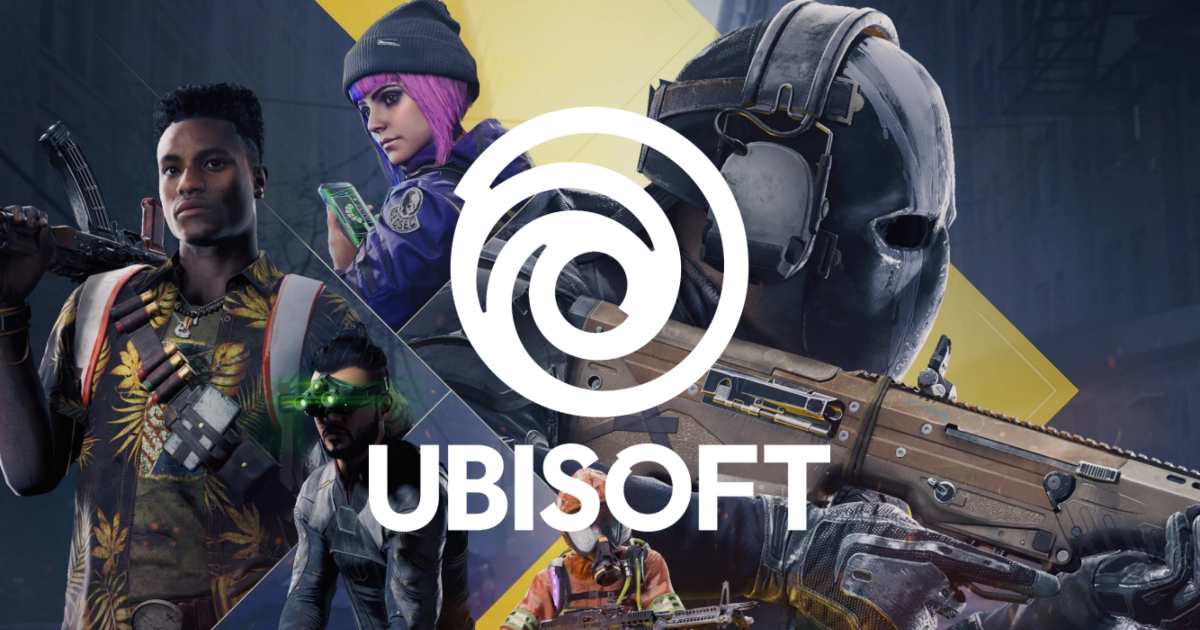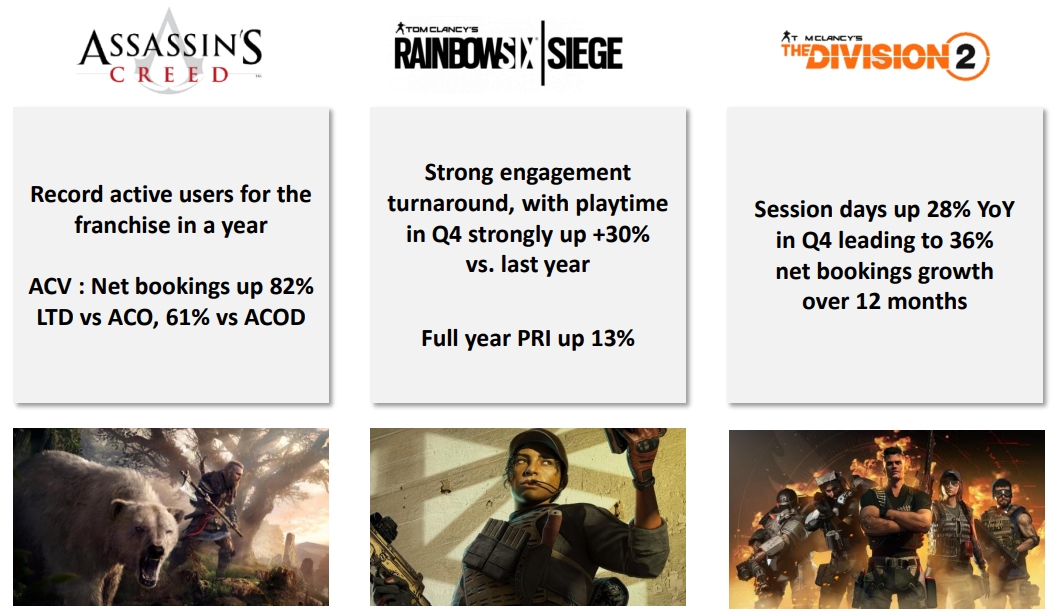Ubisoft betting big on free-to-play and AI as it reports record operating loss of €585 million
Ubisoft has published its financial results for the fiscal year ended March 31. The company posted significant losses and outlined its plans for the future, which include the focus on core-franchises, F2P, and AI adoption.

Financial highlights
- According to Ubisoft’s full-year report, sales were €1.81 billion, down 14.6% year-over-year.
- Operating loss reached a record €585.8 million, compared to operating income of €241.5 million in the previous year.
- Net bookings decreased by 18.3% to €1.73 billion. It is worth noting that bookings related to in-game purchases, DLCs, and other recurring payments amounted to €1 billion, up 23.3% year-over-year.
- 58% of total net bookings came from back-catalog games,
- North America accounted for 50% of the company’s net bookings. It is followed by Europe with 32%.
- Consoles and PC accounted for 40% and 18% of Ubisoft’s bookings respectively. Mobile showed strong growth, with its share increasing from 9% to 31% year-over-year.
Layoffs, new strategy, and future plans
- Since September 2022, Ubisoft’s headcount has decreased by more than 700 employees. As of May 16, the company employs less than 20,000 people globally.
- The layoffs are part of its cost-cutting program, under which it plans to cut over €200 million in operating expanses over the next two years. This includes targeted restructurings, the closure of five European offices, divesting non-core assets, and “tight control of recruitments.”
- However, Ubisoft will continue to hire new employees. It plans to increase the size of the Assassin’s Creed team by 40% over the coming years to “fuel its ambitious expansion.” Right now, there are around 2,000 people working on the franchise.

ACV — Assassin’s Creed Valhalla; ACO — Assassin’s Creed Origins; ACOD — Assassin’s Creed Odyssey; PRI — player recurring investment (in-game purchases, battle passes, etc.)
- Ubisoft CEO Yves Guillemot noted that the company has been successful in the markets of open-world and live service games. It won’t stop making premium AAA titles, but it is now betting big on the F2P model.
- “While mastering free-to-play is hard, and it is very important to remain prudent, recent developments are encouraging,” Guillemot said.
- The publisher is satisfied with the closed beta of XDefiant, which reached over 1 million players and “strong retention.” It also expects two mobile titles, Rainbow Six Mobile and The Division Resurgence, to perform well once they launch globally.
- The Division Heartland is another free-to-play PvEvP shooter, which is expected to enter a new testing phase this summer.
- “In line with our commitment, we are making visible iterative progress on which we can build the next steps toward ultimately delivering a breakthrough in this major market,” Guillemot said.
- On top of that, Ubisoft sees great potential in generative AI to transform the games industry, and the company is “uniquely positioned to lead this transformation.” It added that it has everything it needs to achieve this goal, including over 20 years of proprietary data and assets.
- According to the publisher, its creators and developers at all levels are now experimenting with AI to “identify the best use cases and harness the power of this technology to have a positive impact on creativity, workflows, and players’ experience.”
- It is unclear what plans Ubisoft has for AI exactly, but earlier this year, it introduced Ghostwriter, a machine learning tool for narrative designers and game writers.